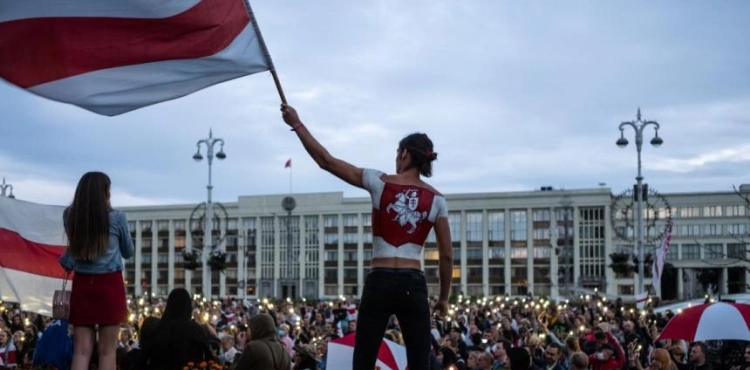European Union foreign policy chief Josep Borrell urged Moscow on Friday not to intervene in Belarus, after Russian President Vladimir Putin pledged to provide military support to its president.
The European Union rejected the official results of the August 9th elections that took place in Belarus, in which Alexander Lukashenko was re-elected with 80 percent of the vote. The bloc is preparing to impose sanctions on its regime in response to what it considers voting fraud and the violent security crackdown against opposition demonstrators.
After holding talks with the bloc´s foreign ministers in Berlin, Borrell said, "I heard a tone from Russia many times that this is an internal matter for Belarus and that they do not want external intervention. I assume that the situation applies to them as well."
"The people of Belarus alone have the right to self-determination. If Russia believes in the independence and sovereignty of the state, it will respect the wishes and choices of the democratic Belarusians," he added.
On Thursday, Putin called the Minsk authorities and the opposition in an effort to find a peaceful "way out" of the crisis, but the Kremlin´s threat of military intervention has raised the possibility of a deterioration of the situation in the country bordering the European Union.
European Union foreign ministers who are holding informal talks with Borrell in Berlin backed a list of 20 people under which their assets could be frozen and travel bans imposed in response to their supposed role in rigging Belarus´ elections or cracking down on protesters.
Borrell said that the list may include "personalities at the highest political levels," but he is unlikely to include Lukashenko himself on it, despite calls by some countries to target him.
The European Union supports the work undertaken by the Organization for Security and Cooperation in Europe to broker a solution to the crisis through negotiation, and thus targeting Lukashenko personally may be counterproductive in this context.












